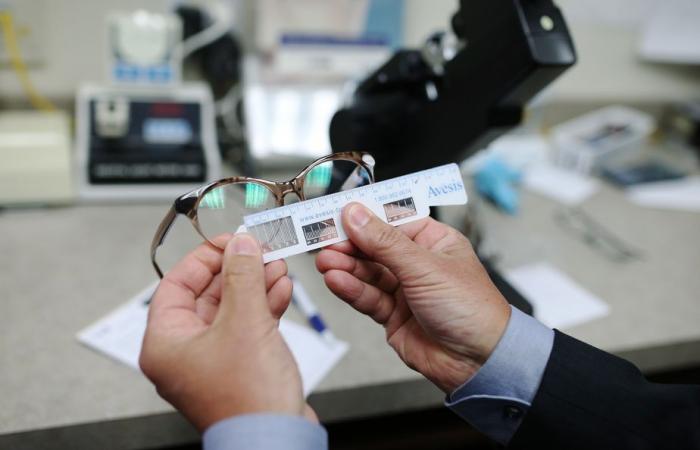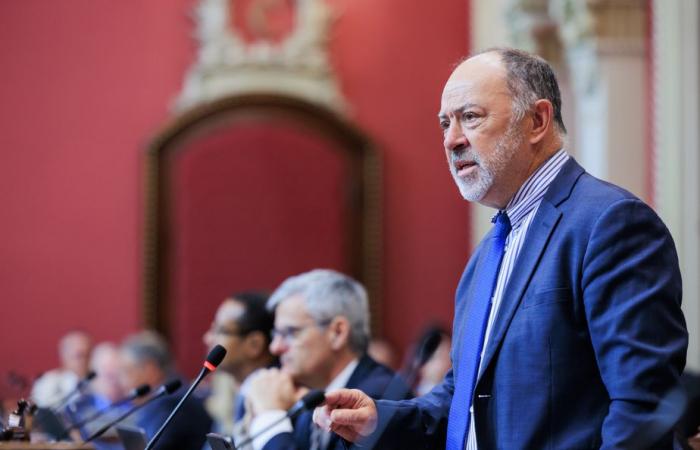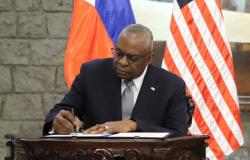(Montreal) On the eve of the withdrawal planned by a majority of optometrists from the Régie de l’assurance santé du Québec (RAMQ), Quebec decides to publish a ministerial decree which will oblige optometrists to remain within the public plan.
Posted at 5:13 p.m.
Updated at 5:27 p.m.
Katrine Desautels
The Canadian Press
The Association of Optometrists of Quebec (AOQ) intends to challenge the government’s actions. In a press release, its president, Dr Guillaume Fortin “strongly” deplored the government’s attitude.
Remember that the AOQ announced a month ago that 85% of its members intended to withdraw from the RAMQ due to the “impasse” in the negotiations surrounding the compensation paid to them by Quebec.
If optometrists had disaffiliated with the RAMQ on Friday, this would have ensured that patients covered by the public plan would pay to obtain the services. These patients represent 55% of optometrists’ clientele, a growing proportion, according to the AOQ.
PHOTO EDOUARD PLANTE-FRÉCHETTE, LA PRESSE ARCHIVES
Quebec Minister of Health, Christian Dubé
On Wednesday, the Minister of Health, Christian Dubé, justified his decision by mentioning the negotiations which aim to renew the agreement which expired in 2020. “What we want is to give time to finish the negotiations. It’s always kind of the same thing. I always look at the perspective of the patient, of Quebecers. Right now, I wouldn’t want people to not be able to afford the optometric services that are needed,” he said.
Remuneration
“Our operating costs have increased three times faster than the fee-for-service rates agreed by the government, so that our remuneration per RAMQ patient visit is today only $3.50,” explained D.r Fortin.
“We are asking for reasonable and fair treatment, to continue to play our role throughout Quebec and contribute to unclogging the system, particularly with the management of some 180,000 eye emergencies each year,” D argued in a press release.r Fort. It indicates that the remuneration of optometrists paid by the RAMQ represents 0.16% of Quebec’s health budget, or approximately $11 per Quebecer, per year.
According to the Health Insurance Act, the Minister may — if he considers that the quality of the medical services offered would be affected by an increase in the number of non-participating professionals carrying out the same type of activity — suspend by order the possibility of professionals subject to the application of an agreement to become non-participants.
This ministerial decree, which will come into force on Thursday, is valid for a period of six months. The Minister may extend this period, but the suspension cannot exceed two years. The Minister of Health may, however, extend the period again, not exceeding the two-year period for each extension period.
“The minister is of the opinion that the increase in the number of non-participating optometrists would affect the sufficiency of medical services offered to insured persons,” we can read in the order published Wednesday.
The opposition in Quebec deplores that the Legault government must use a ministerial decree to force optometrists to remain in the public system. “Obviously, the government is incapable of coming to an agreement with them, so it is using the strong method for six months,” commented PQ MP Joël Arseneau. It protects services, we agree, but at some point, the government must also be able to settle with those involved in the health sector. »
His liberal colleague, André Fortin, agreed. “Today, we find ourselves with, let’s say… a necessary measure to preserve services to the population, but which could have been avoided if the government had negotiated in good faith with optometrists. »
The Canadian Press’ health content receives funding through a partnership with the Canadian Medical Association. The Canadian Press is solely responsible for editorial choices.







